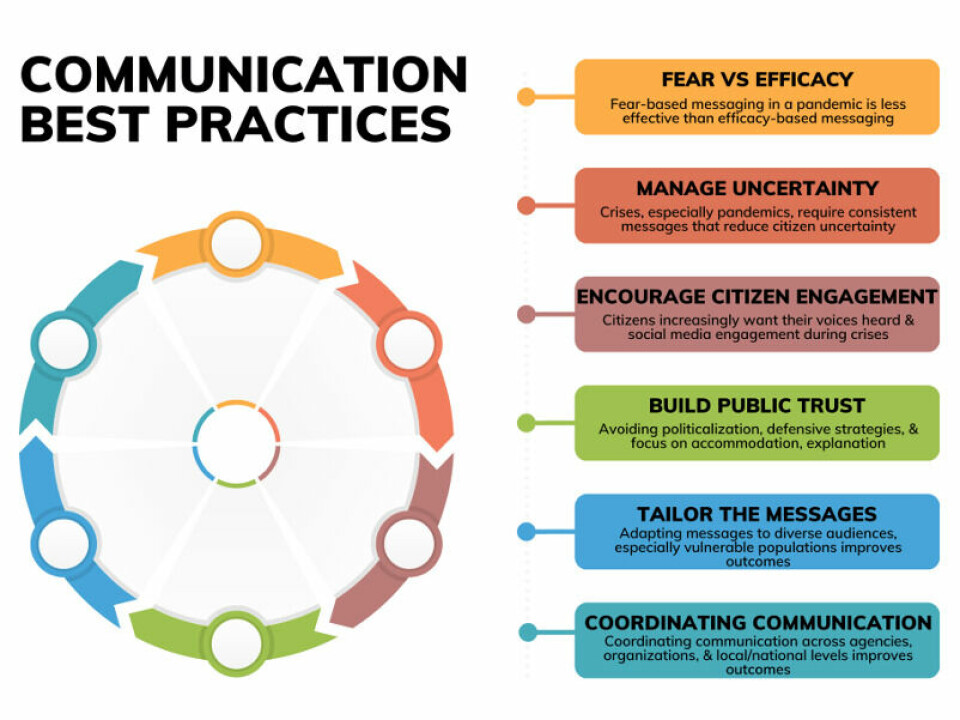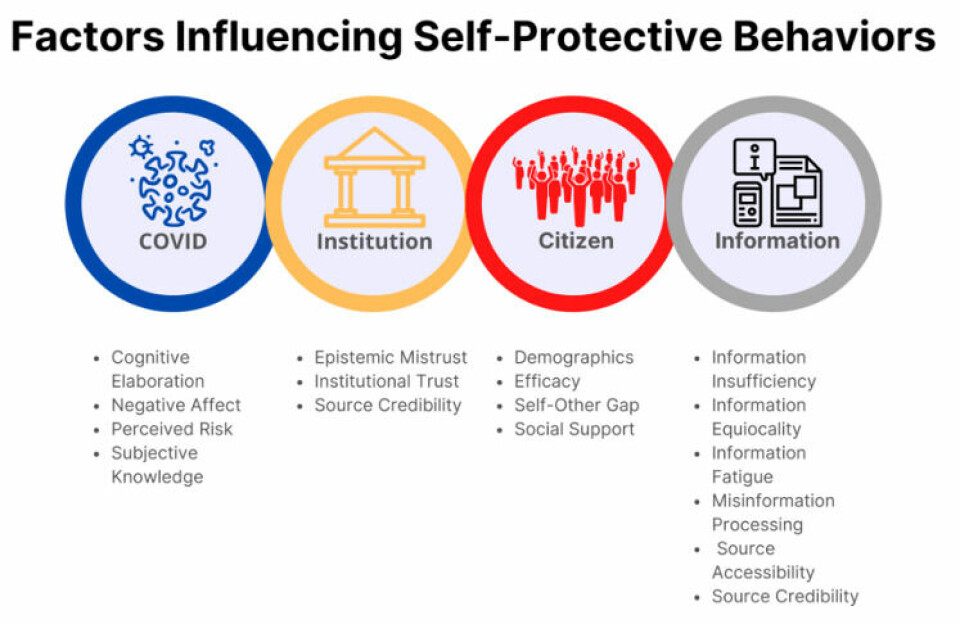Share your science:

Nine recommendations on risk communication during health crises
SHARE YOUR SCIENCE: Building and maintaining a good reputation and trust – especially related to health issues – is an essential tool for governments and public health authorities to effectively manage future pandemics.
In December 2022 I found myself
sitting in a hotel bar in Almaty, Kazakhstan talking with a friend and
colleague who works for the World Health Organization. We talked about the
importance of building communities of knowledge, practice, and experience to
tackle global problems like COVID-19.
I was in Kazakhstan to participate in the WHO’s workshop on risk communication and community engagement for Central Asia, offering a keynote address on lessons learned from the pandemic in Europe, as a way of sharing best practice.
How governments should communicate during a health crisis
To promote self-protective behaviours during a pandemic like covid-19, governments must ensure interactions between all stakeholders – citizens as well as all the managing institutions.
To promote self-protective behaviours during a pandemic like covid-19, governments must ensure interactions between all stakeholders – citizens as well as all the managing institutions.
In my research I had chosen 9 countries of focus (Bulgaria, France, Germany, Hungary, Italy, Lithuania, the Netherlands, Portugal, and Sweden) and 2 countries for comparison (UK and US), based an exhaustive search for English-language resources related to the pandemic.
What I found was this:
- Trust in the communicating institutions is a central – if not the central – feature of communication success, regardless of relative success in managing the pandemic.
- Two-way communication or citizen engagement was crucial for communication success. Governments must actively listen and respond to their citizens’ needs.
- Effective pandemic communication strategies should focus on explaining to citizens what self-protective behaviours should be taken and why, within each country’s national contexts.
- During a pandemic, governments should adopt a positive tone supporting citizen confidence in taking action, communicating engagement and responsiveness because defensive messages are simply less effective.
- Citizens prefer transparency and a constructive management of fear and anxiety.
- Tailoring the messages to meet different demographics’ information needs and attitudes about government is essential. For example, minority communities within countries often have different information and communication needs.

A contingency approach to responding to health crises
Overall, the literature analysing COVID-19 communication supports the need for an effective stakeholder relationship management framework. This framework focuses on the interactions between the institutions managing COVID-19, citizen interests, and COVID-19-related issues that lead to self-protective behaviours being enacted.
This kind of framework is meant to support agile crisis response to allow governments and public health authorities to diagnose the key communication challenges within a population and then design messages to meet those citizen information needs – reflecting one of the best practices learned from COVID-19.

Strategies must be informed by context
Across the EU, UK, and US literature, citizens’ knowledge of the disease, their own perception of risks, and the amount of control they feel they have directly, affect their willingness to take measures to protect themselves.
Within the context of the COVID-19 pandemic, people were already afraid. Therefore, it makes more sense to focus on building positive messages about reducing risk rather than fear-based messages. Countries like England and Hungary used fear-based messaging or emphasised punishment for non-compliance and had lower levels of citizen compliance with instructional messages.
A key factor to behaviour is citizens’ trust in institutions
In my research of 236 scientific publications and institutional reports related to the COVID-19 pandemic between 2020 and 2022, I found that institutional trust emerged as central to citizen behaviour.
Building and maintaining a good reputation and trust – especially related to health issues – is an essential tool for governments and public health authorities in order to effectively manage future pandemics.
Whether research was analysing the high-trust environments in Sweden or explaining why political polarisation eroded institutional trust and correlated with a low level of adoption of self-protective behaviours in countries like the US, UK, Bulgaria, and Hungary, institutional trust was the key factor.
People do what they believe has an effect
Our confidence in our ability to enact certain behaviours AND that those behaviours lead to positive outcomes, guides what we actually do.
Such citizen-related factors highlight the demographic and attitudinal predispositions for people to enact self-protective behaviours. Demographic factors matter and depend on location, culture, and timing.
The evidence from across the countries clearly concludes that governments and public health authorities should:
(1) explain what people should be doing,
(2) provide clear instructions on how to perform the behaviour correctly, and
(3) provide evidence that there is a benefit for them in performing the behaviours.
Information gaps lead to mis- and disinformation
Popular media and scientific research widely recognise that the COVID-19 ‘infodemic’ poses a serious threat persuading citizens to adopt self-protective behaviours.
When citizens feel they do not have enough quality information from their governments and public health authorities, they will fill perceived information gaps by relying on other sources of information - thus opening the door to mis- and disinformation.
Additionally, in such a prolonged crisis, several pieces of research also identified a new challenge related to information fatigue. Information fatigue emerged as a prominent factor in countries like Germany, Italy and Lithuania.
Finally, when there are lower levels of information literacy – that is being able to discern good information – citizens are more resistant to adopting self-protective behaviours recommended (or required) by governments and public health institutions.
While it is obvious to say that ‘good pandemic communication practice’ is necessary, good pandemic communication practice requires planning, adaptability, and a strong understanding of citizen attitudes.
- Much of the material that I presented in Kazakhstan was my contribution to an EU-COVI funded report on communication strategies enacted across EU countries from 2020-2022. On Monday (30 January, 2023), I had the opportunity present these findings to the COVI Committee in the EU.
References
Share your science or have an opinion in the Researchers' zone
The ScienceNorway Researchers' zone consists of opinions, blogs and popular science pieces written by researchers and scientists from or based in Norway.
Want to contribute? Send us an email!





























